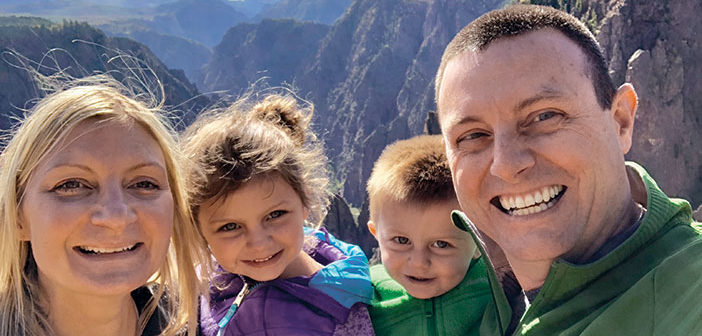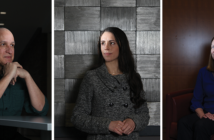A surgeon becomes the patient.
The bedside manner of surgeons is stereotypically cut and dry, but a near-death experience—his own—gave one cardiothoracic surgeon an enlightened outlook on patient care.
In December 2017, Robert Meguid ’97 MD’02, MPH, an associate professor of surgery at the University of Colorado School of Medicine, was teetering between life and death when a common cold quickly devolved into septic shock. Sepsis can happen to anyone: Meguid, 42 and healthy, climbs mountains and has played ice hockey since his undergrad days at Brown.
He was on vacation with his family—wife Cheryl, daughter Natalie, 3, and 11-month-old son Cameron—on the coast of Kangaroo Island, off southern Australia, walking among endangered Australian sea lions. Two hours after the nature walk, Meguid was curled up in the car, unable to breathe; 15 hours later, he was intubated in the island’s only emergency room and helicoptered to a tertiary hospital on the mainland.
Meguid’s lungs and kidneys shut down, and he had to have a tracheostomy. He lost 35 pounds and was unconscious for 22 days, ultimately waking in the same ICU in Colorado where he cares for his own patients after surgery.
Now, Meguid says, he is “functionally almost entirely recovered”; he returned to surgery in April and hopes to get back on the ice this winter.
The ordeal reshaped how Meguid practices medicine, he says. “The emphasis in medical school is on learning about the patient, and Brown excelled in communicating the importance of empathy toward patients,” he says. Yet he knows now that he didn’t understand what patients’ families endure. “I have noticed a difference in my ability to talk to the families and to relate to what they’re going through,” he says.
Most importantly, Meguid says, “It makes me cherish each day with my family.” Still, he says, “I could have lived without this firsthand experience.”




